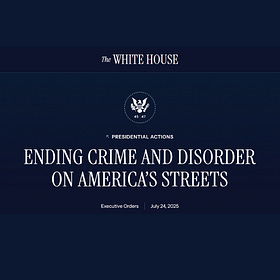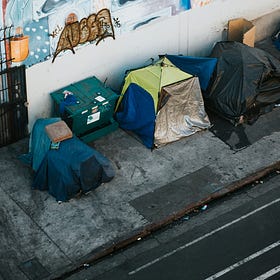When Rhetoric Kills: "Involuntary lethal injection, or something. Just kill them."
Brian Kilmeade's 'Fox & Friends' comment and the Minneapolis homeless encampment shootings
On a recent episode of Fox & Friends, when discussing unhoused populations, Brian Kilmeade said, “Involuntary lethal injection, or something. Just kill them.” Statements like this one normalize violence. The fact that a national morning host can casually call for the execution of unhoused people without consequence is a frightening signal of where we are as a country.
The remark aired nationally just days before mass shootings targeted homeless encampments in Minneapolis, illustrating the real-world dangers of dehumanizing rhetoric such as this.
The shootings occurred within 12 hours of each other on September 15. Mayor Jacob Frey said he “wouldn't be surprised” if the two incidents were connected.
Unhoused people already endure daily hardships and systemic dehumanization. That danger has now escalated to lethal violence.
More than just hateful rhetoric, statements like Kilmeade’s function as active calls to violence. Weaponizing rhetoric against a population as vulnerable as the unhoused is especially heinous.
Kilmeade wasn’t fired or publicly reprimanded. After a halfhearted apology, he will carry on hosting Fox & Friends as usual. By contrast, ABC has pulled Jimmy Kimmel Live! ‘indefinitely’ after Kimmel’s recent remarks about MAGA’s response to Charlie Kirk’s death.
Kilmeade openly called for the killing of unhoused people, yet keeps his job.
What have we become if someone can advocate for state-sanctioned murder on live television and keep their job? Why is this considered acceptable speech in America today?
A huge part of the equation is the Trump administration’s targeted dehumanization of unhoused people.
Trump’s “Ending Crime and Disorder on America’s Streets” executive order criminalizes homelessness, promotes forced institutionalization, defunds effective harm reduction programs, and prioritizes enforcement over housing solutions.
These measures exacerbate the challenges already faced by unhoused individuals and fail to address the root causes of homelessness. This goes beyond written policy; it’s being enacted on the streets.
Shortly after publishing this executive order, Trump deployed the National Guard to Washington, D.C. for the forcible removal of homeless encampments. This has been replicated in other major U.S. cities, like Memphis, New Orleans, Baton Rouge, and San Francisco, and Trump has suggested continuing with future deployments in Chicago, New Orleans, Baltimore, and St. Louis, regardless of state or local support.
Violent rhetoric from MAGA-aligned media and Trump policy aren’t separate. They reinforce each other.
As I’ve written about previously, we’ve been here before. Moments in history like Nazi Germany’s Aktion T4 program and South Korea’s social purification program of the 1980s exhibit that violent persecution of the unhoused is often a hallmark of a society sliding into fascism. The criminalization of poverty and disability has always been dressed up as “public order.”
Trump’s New Executive Order Continues a Global Legacy of Criminalizing Visibility
On July 24, 2025, U.S. President Donald Trump signed the “Ending Crime and Disorder on America's Streets” executive order, which seeks to eliminate so-called “vagrancy” by legalizing the forced institutionalization of people who are unhoused, mentally ill, and/or living with substance use disorder. The order also directs federal agencies to prioritize f…
Like I’ve also written about recently, the majority of unhoused people live with disabilities, whether physical, psychiatric, or chronic illness. So when Kilmeade says “just kill them,” he’s talking about disabled people too.
Why Homelessness is a Disability Rights Issue
Homelessness is often described as a housing crisis or an economic failure, but it is also fundamentally a disability issue. Disabled people are disproportionately represented among unhoused populations, not because disability and homelessness naturally go hand in hand, but because our society fails to provide the resources and protections necessary for survival. The connection between disability and homelessness is rarely acknowledged, yet it exposes how deeply systemic neglect shapes who can remain housed and who is pushed onto the streets. More than a lack of shelter, homelessness is the predictable outcome of policies and structures that leave disabled people without adequate support or security.
Some people will argue that statements like Kilmeade’s are “just words”, some sort of bad joke. History and current events tell us otherwise. MAGA-era words and policy are actively leading to violence. The line between rhetoric and bloodshed is razor thin, and we’re seeing it being crossed in real time.
If we shrug this off, we’re complicit in letting dehumanization grow unchecked. People’s lives, rights, and safety are at risk. Media figures who spread hate and policymakers who turn hate into law need to be held accountable.




